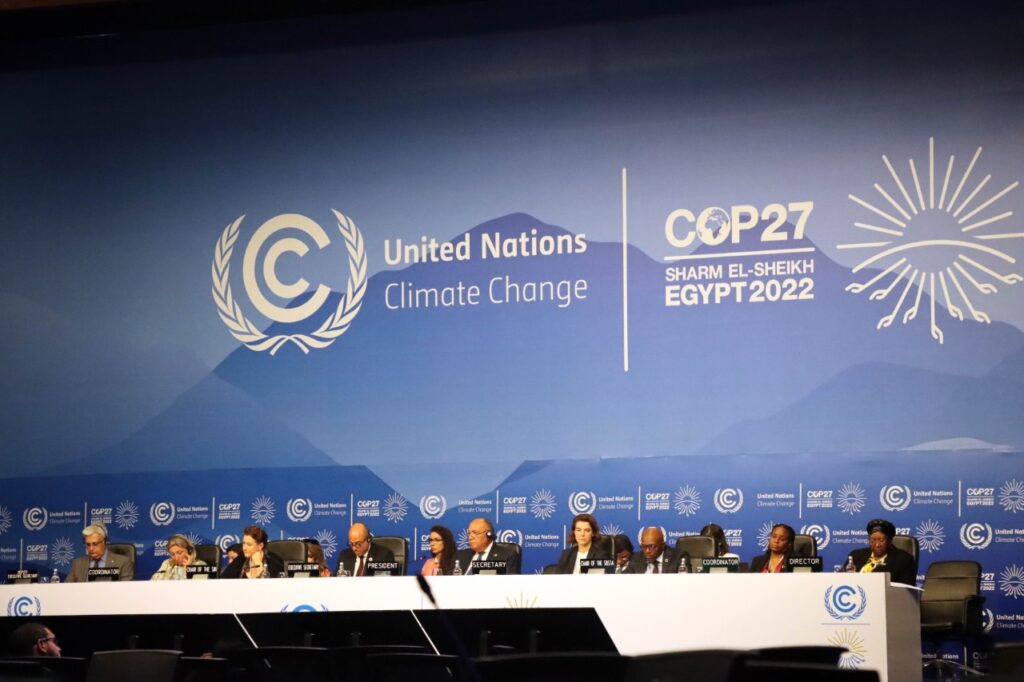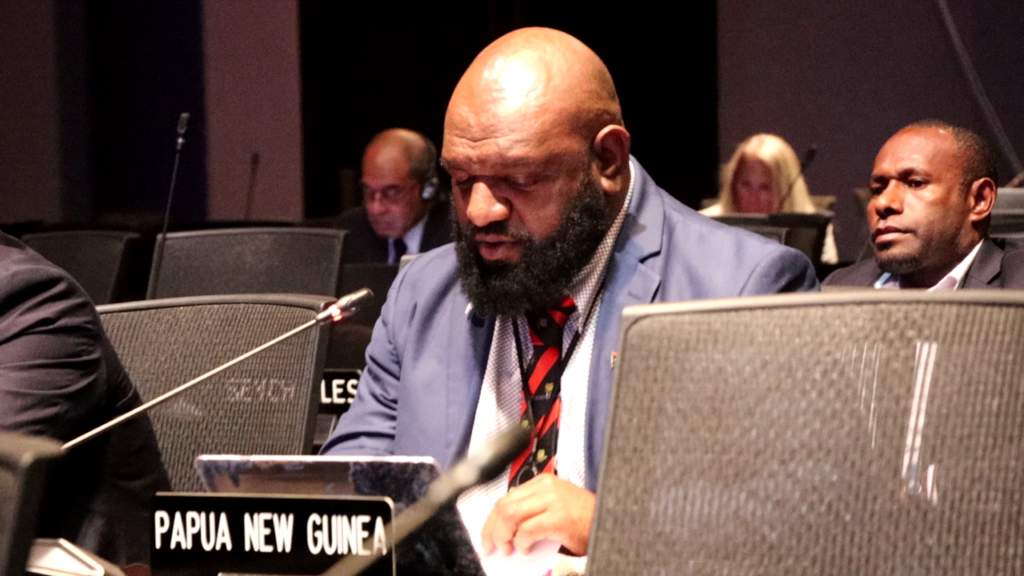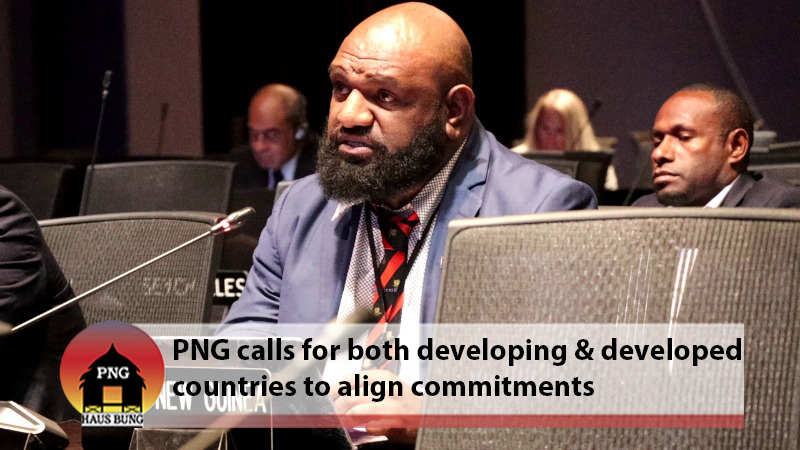Following the official opening of the UN Climate Change, Conference of Parties (COP27) this week in Egypt, Papua New Guinea presented a resounding statement on behalf of the Coalition for Rainforest Nations (CFRN) at the Subsidiary Body for Implementation (SBI) session of the COP.
Also being the chair of the CFRN, PNG has called for the need for Parties, both developing and developed countries to align their commitments in their current Nationally Determined Contributions (NDCs). NDCs are climate action plans by parties to the Paris Agreement to cut greenhouse gas (GHG) emissions and adapt to climate impacts.

PNG’s Climate Special Envoy Ruel Yamuna who delivered the statement on behalf of the CFRN expressed that the NDC Synthesis Report and the United Nations Environment Programme (UNEP) Gap report, both highlight that current NDCs are not aligned with emissions pathways to achieve the Paris Agreement of keeping global temperature below 1.5 degrees Celsius.
“We must take stock of that reality now”, said Mr. Yamuna.
In encouraging Parties to consider this, Mr. Yamuna also highlighted crucial climate change mitigation actions as recommended by CFRN going forward in forestry, land-use and related sectors.
“The forest and land-use sectors have huge mitigation potential, particularly in developing countries, and are essential in all 1.5 Degree Celsius pathway.
“The Intergovernmental Panel on Climate Change (IPCC) Report highlights that the (Agriculture, Forestry and Land-Use) AFOLU sectors can provide 20-30% of the global mitigation under the 1.5 degrees Celsius pathway.

“We strongly request that developed countries also apply the same national level guidance on any forest related activity in their territories to ensure fairness and balance. It would be inequitable that developing countries are held to a high standard than developed”, said Mr. Yamuna.
Mr. Yamuna added that rainforest nations have already delivered more than 9 giga tones of greenhouse gas (GHG) emissions reductions through Reducing Emissions from Deforestation and forest Degradation (REDD+) mechanism. He however said, so far, developing countries have carried that economic burden mostly alone.
Mr. Yamuna stressed that Parties must strongly encourage a significant scale up of public and private finance for REDD+, particularly for corporations towards net-zero emissions.
“Developing countries cannot be expected to solve a problem they did not cause without finance to implement the Paris Agreement”, said Mr. Yamuna

